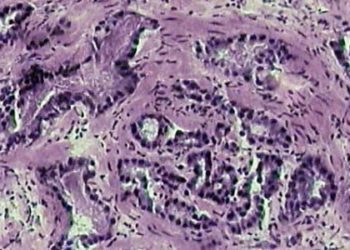Prevalence of keratoconus estimated at more than 3%
1. In a small cohort of young adults in Australia, the community prevalence of keratoconus was 3.4% based on corneal topography.
2. The incidence of keratoconus among 20-28-year-olds over the 8-year longitudinal study was 2.2%.
Evidence Rating Level: 2 (Good)
Study Rundown: Keratoconus is an ophthalmic disease in which the corneas thin and become progressively cone-shaped. It can cause vision loss and, in severe cases, requires corneal transplantation. The prevalence of keratoconus has been estimated at 0.0003-2.3% by past population studies. This study aimed to assess prevalence in an Australian community through longitudinal assessment using Scheimpflug tomography, a non-invasive imaging modality that can be used to assess both the anterior and posterior corneal surfaces. Among 755 subjects, the prevalence of keratoconus at age 28 was 3.4%. Keratoconus prevalence was higher in males, and diagnosis was significantly associated with shorter axial length, higher astigmatism, and myopia. The incidence over the study period, which spanned from age 20 to 28 years for all subjects, was 271 cases per 100,000 person-years, or 2.2%. Though interpretation is limited by the modest size of the cohort, this study indicates that keratoconus may be more common than had been previously estimated. However, keratoconus rates have been shown to vary widely between ethnic and geographic groups, meaning that these results apply most directly only to the studied Australian population.
Click to read the study in Ophthalmology
Relevant Reading: Keratoconus: An updated review
In-Depth [prospective cohort]: The cohort was made up of 20-year-olds living in Perth, Australia, who underwent ophthalmic exam and imaging using a Pentacam device between 2010 and 2012. Follow-up at age 28 (8 years later) was conducted between 2018 and 2020. Subjects with a Belin/Ambrósio enhanced ectasia display (BAD-D) score of at least 2.6 in at least one eye based on tomography were evaluated by two corneal specialists for definitive diagnosis of keratoconus. A total of 8 subjects had keratoconus at baseline (age 20), while 26 were diagnosed over the study period. The incidence was calculated based on only 669 participants as not all subjects had imaging at both age 20 and 28. The 95% confidence interval for the incidence of 2.2% was 1.12 to 3.36%. In an age-adjusted multivariable model, apnea-hypopnea index, an indicator of obstructive sleep apnea, was significant associated with keratoconus risk with an odds ratio of 2.93.
Image: PD
©2022 2 Minute Medicine, Inc. All rights reserved. No works may be reproduced without expressed written consent from 2 Minute Medicine, Inc. Inquire about licensing here. No article should be construed as medical advice and is not intended as such by the authors or by 2 Minute Medicine, Inc.






